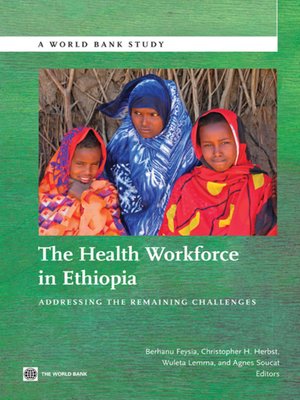The Health Workforce in Ethiopia
ebook ∣ Addressing the Remaining Challenges · World Bank Studies
By Berhanu Feysia

Sign up to save your library
With an OverDrive account, you can save your favorite libraries for at-a-glance information about availability. Find out more about OverDrive accounts.
Find this title in Libby, the library reading app by OverDrive.



Search for a digital library with this title
Title found at these libraries:
| Library Name | Distance |
|---|---|
| Loading... |
Health indicators particularly on child health and malaria in Ethiopia have improved significantly in recent years, with the next challenge now focused on improving maternal health indicators. Improvements in Child health and Malaria in particular can be attributed to strong government commitment towards health results in the country, reflected in a number of notable policies and programs related to Human Resources for Health (HRH), in particular the health extension worker program. However, indicators related to maternal health, remain problematic. Ethiopia has one of the lowest levels of assisted deliveries in the region. Although increases in the number of health workers particularly in rural areas may have contributed to improving access to some health services, it is in the government's interest to further improve the stock, distribution and performance of relevant health workers in Ethiopia, particularly to bring about improvement in access to maternal health services for the poor.
This document reviews the current HRH situation in Ethiopia, summarizes the evidence on population use of select health services, and offers relevant policy options to assist the government finalize its new Human Resources Strategy and address remaining health challenges.







